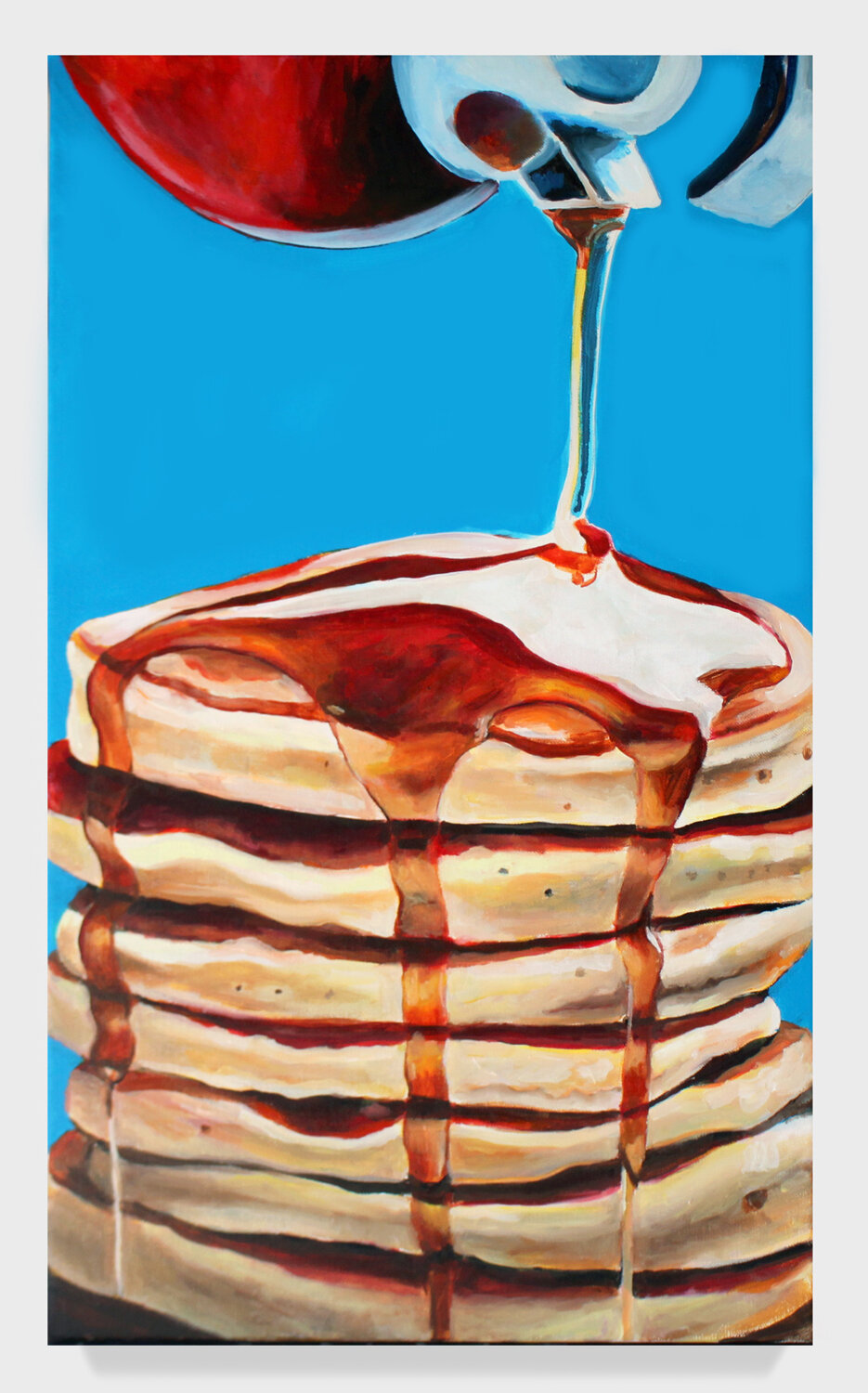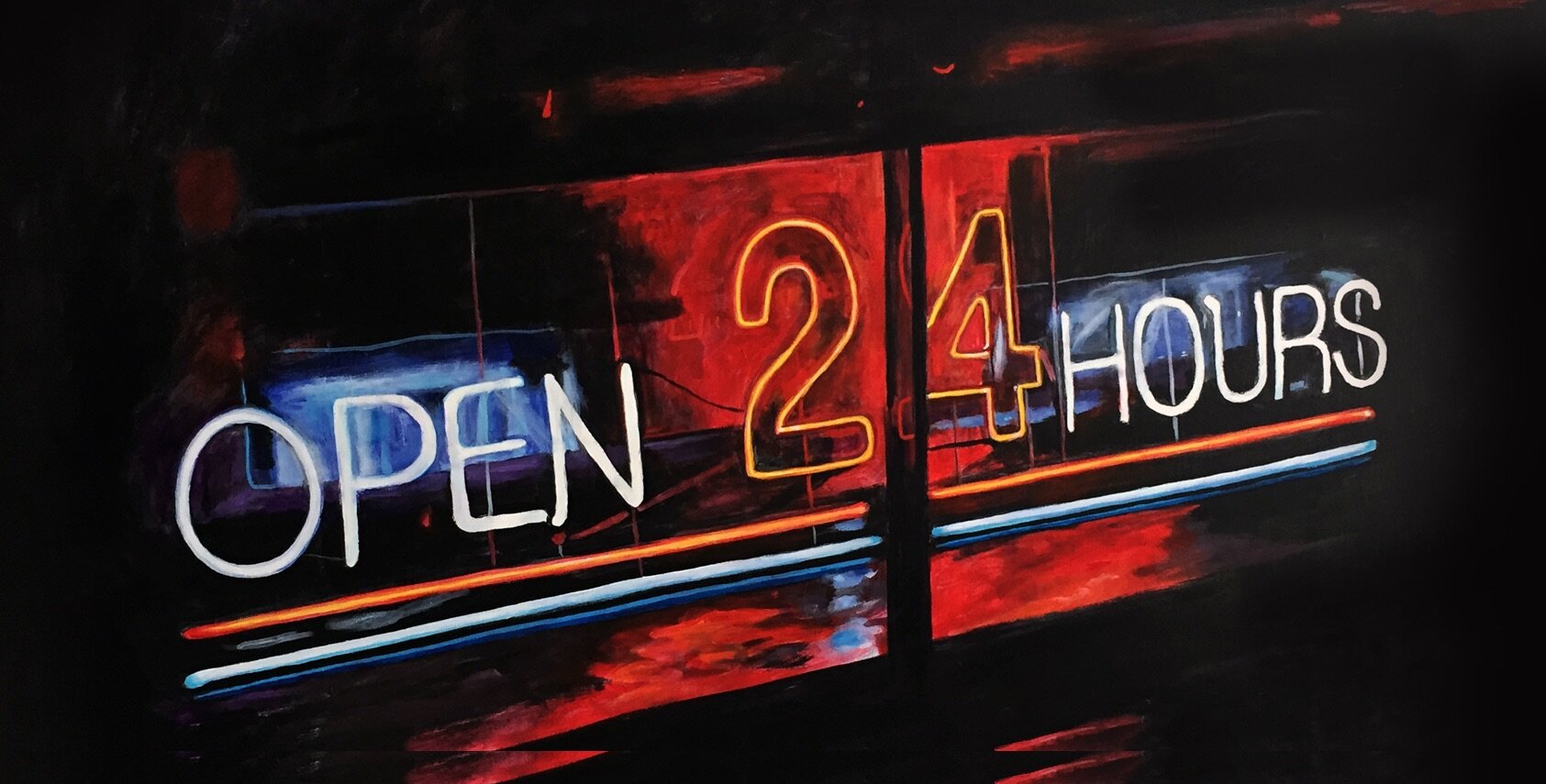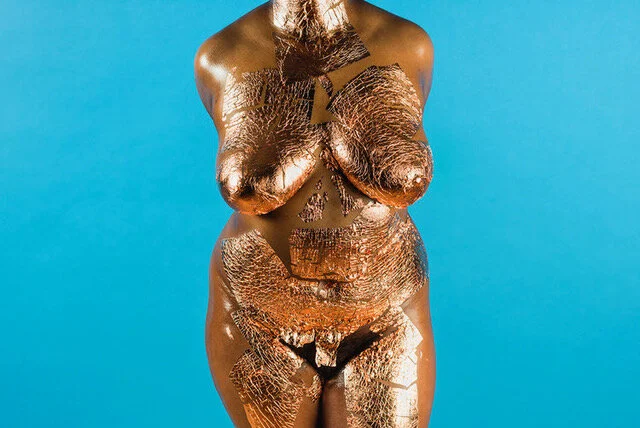Open 24 Hours
Katherine McMahon’s Diner Paintings
The art of Katherine McMahon in the windows of the Silver Lining Diner. Image courtesy of the artist.
Driving up to the Silver Lining Diner, where Katherine McMahon’s paintings hang in the windows, can bring on a wave of different sensations: there is the joy of actually seeing art in person again, the cravings brought on by her paintings of syrupy pancakes, and the uneasiness evoked by her portrait of waitress Shelly Johnson from Twin Peaks, whose stare suggests that she might be possessed by some inhabiting spirit.
Mia Wallace Drinks a Milkshake at Jack Rabbit Slim’s, 2020, acrylic and oil on canvas, 11 x 14 in. Image courtesy of the artist.
McMahon’s diner-themed art evokes nostalgia for a manufactured past, an era symbolized by diners as portrayed in film and television since their 1950’s heyday. These collective “memories” aren’t based on the 1950’s as actually experienced at the time, but by media presenting an idealized vision of the era. McMahon’s painting Mia Wallace Drinks a Milk Shake at Jack Rabbit Slim’s was based on a still of Uma Thurman’s character drinking the infamous “five-dollar milkshake” in Quentin Tarantino’s film Pulp Fiction. The scene takes place not in a diner, but rather in Tarantino’s cynical imitation of one: a fictional 1950’s theme restaurant. Of course, the era’s disastrous race relations, environmentally damaging nuclear testing, and anti-communist witch hunts aren’t included in this rose-tinted nostalgia: instead, the viewer gets muscle cars, Buddy Holly, and the twist. The viewer is given a thin slice of idealized middle-class society that, in the collective imagination, has become the decade itself — just as Pulp Fiction itself has come to symbolize much of the early 90’s to our time.
Shelly Johnson at the Double R Diner, 2020, acrylic and oil on canvas, 24 x 30 in. Image courtesy of the artist.
Twin Peaks is another product of the early 90’s that has become emblematic of that era. Like Pulp Fiction, the show featured many nostalgic references to the 1950’s and, specifically, diners. McMahon has found further connections between Twin Peaks and life under quarantine: “With FBI Special Agent Dale Cooper searching for Laura Palmer’s killer, the town is mourning her loss and waiting for answers. I think there are some metaphorical similarities to what we're collectively experiencing. The town’s heartbreak, the eeriness, the mysteries and fear… Those are all things I have felt and I think we’ve perhaps all felt in some measure throughout these past 8 weeks.”
Stack of Pancakes, 2020, acrylic and oil on canvas, 13 x 22 in. Image courtesy of the artist.
McMahon’s project was inspired in part by a 2012 Vanity Fair article, “Much Ado about Nothing” by S. L. Price, that detailed the production of Barry Levinson’s Diner (1982): a film that launched the trend of entertainment based on mundane life, a style later popularized by Seinfeld. The title used for McMahon’s painting series, “The Roast Beef is the Story”, comes from a quote about the sandwich’s centrality in the movie: “Between the lines about roast beef lies all you need to know about [the characters’] fear, their competitiveness, their friendship. The roast beef is the story.”
Late Nite Eats, 2020, acrylic and oil on canvas, 24 x 30 in. Image courtesy of the artist.
The mundane comedy found in Diner and Seinfeld brings back memories of a seemingly distant time when there weren’t new existential threats popping up every day. The question remains: was life actually that easy, or does the constant stress and pressure of lockdown just make it seem that way? McMahon’s neon sign paintings Late Night Eats and Open 24 Hours evoke memories of a time when diners were actually able to offer the food and services advertised. Now, the only thing available 24 hours a day at the Silver Lining Diner is McMahon’s art. If you’re out of delivery range and can’t get curbside pickup, the diner can still be supported: fifty percent of the proceeds of sales from McMahon’s show will benefit the diner, a “silver lining” during a time when many other cherished hangouts are going dark.
Open 24 Hours, 2020, acrylic and oil on canvas, 48” x 36, in. Image courtesy of the artist.
For more info on Katherine McMahon visit www.katherinemcmahonart.com.
Silver Lining Diner is located at 32 Montauk Hwy, Southampton, NY 11968.











